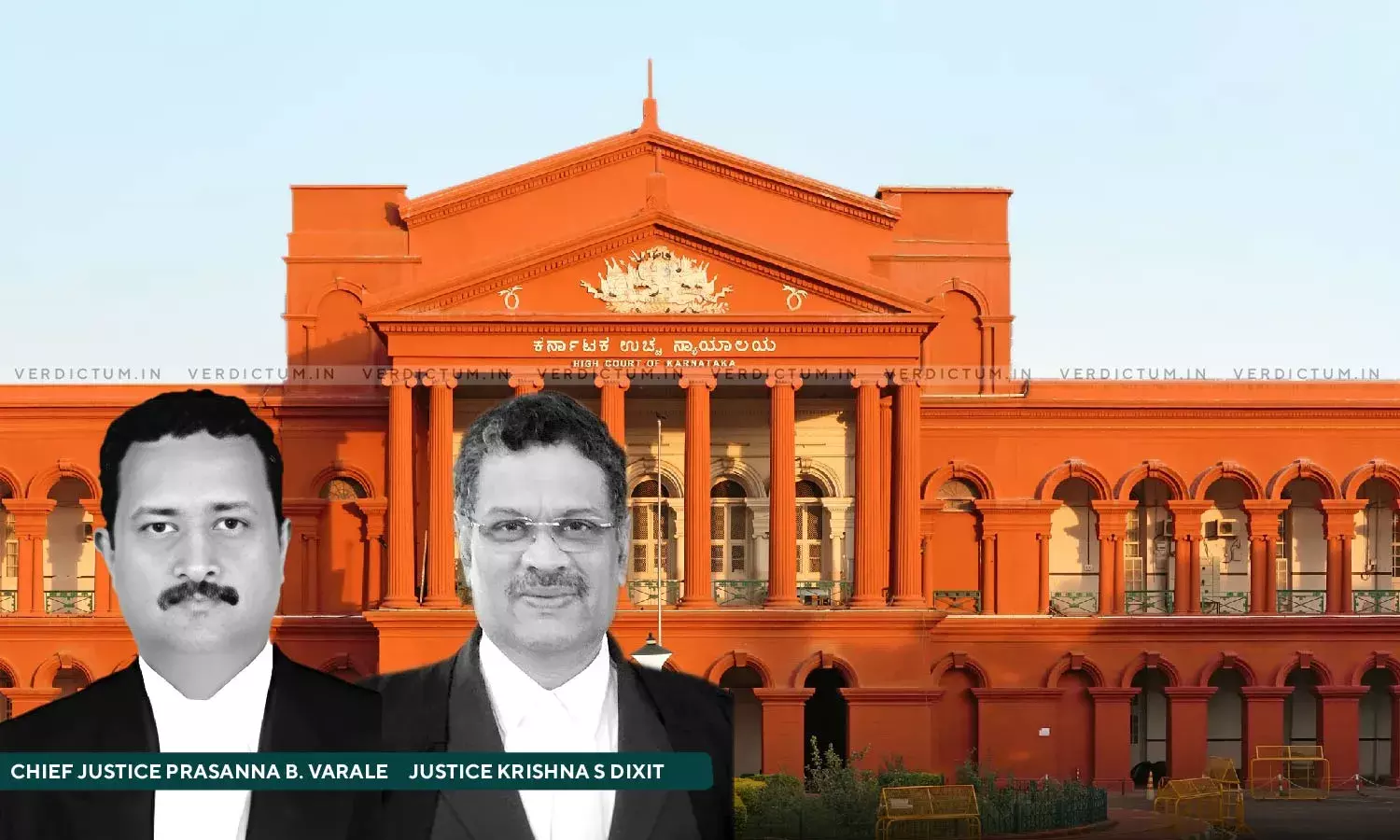Grant Of Only A Right To Grow Trees On The Land Cannot Be Treated As The Grant Of Land Itself: Karnataka High Court

The Karnataka High Court observed that the grant of only a right to grow trees on the land cannot be treated as granting of land itself.
The Court held thus in an intra-court appeal preferred against the order of the Single Judge of the High Court declining plea for payment of compensation for taking a land.
A Division Bench of Chief Justice Prasanna B. Varale and Justice Krishna S. Dixit observed, “The learned Single Judge having examined all the Revenue Records and the so-called Grant Order has rightly come to a conclusion that the subject-land as such has not been granted, although only right to grow trees is accorded. In the case of Grant, ordinarily title to the land vests in the Grantee, at times subject to certain conditions violation of which may result into rescinding of the Grant. However, grant of only a right to grow trees on the land cannot be treated as the grant of land itself.”
Advocate Adaveeshaiah represented the appellants while Additional Government Advocate Shweta Krishnappa and Advocate B.B. Patil represented the respondents.
In this case, the appellants had challenged the Single Judge’s order by which their writ petition having been negatived their request for payment of compensation for the taking of subject-land was not acceded to.
After hearing the counsel for the parties and having perused the appeal papers, the Division Bench declined the indulgence in the matter by broadly agreeing with the observations of the Single Judge.
The High Court said, “… title to the subject-land despite making over a particular right in favour of ancestors of the Appellants, remains in tact with the government. What has been constitutionally guaranteed under Article 300A is the right to property; in other words, the State can take private property for public purpose on payment of compensation.”
It further noted that the very idea of acquisition envisages “private property” and therefore the question of government acquiring its own property being an anathema to the logic and law does not arise.
“The power of eminent domain which is an attribute of the government avails against the private property and not of the property of the said government, subject to all just exceptions into which argued case of the Appellants does not fit”, it added.
The Court, therefore, concluded that whatever trees are grown in the subject-land belong to the ownership of the so-called Grantees and hence compensation needs to be paid for the said trees grown in the subject-land if the appellants have given up their right over the trees. It said that if they only have taken or permitted to take these trees, the question of paying any compensation would not arise.
Accordingly, the High Court dismissed the appeal.
Cause Title- Nanjundappa & Ors. v. The State of Karnataka & Ors. (Neutral Citation: 2024:KHC:2122-DB)


